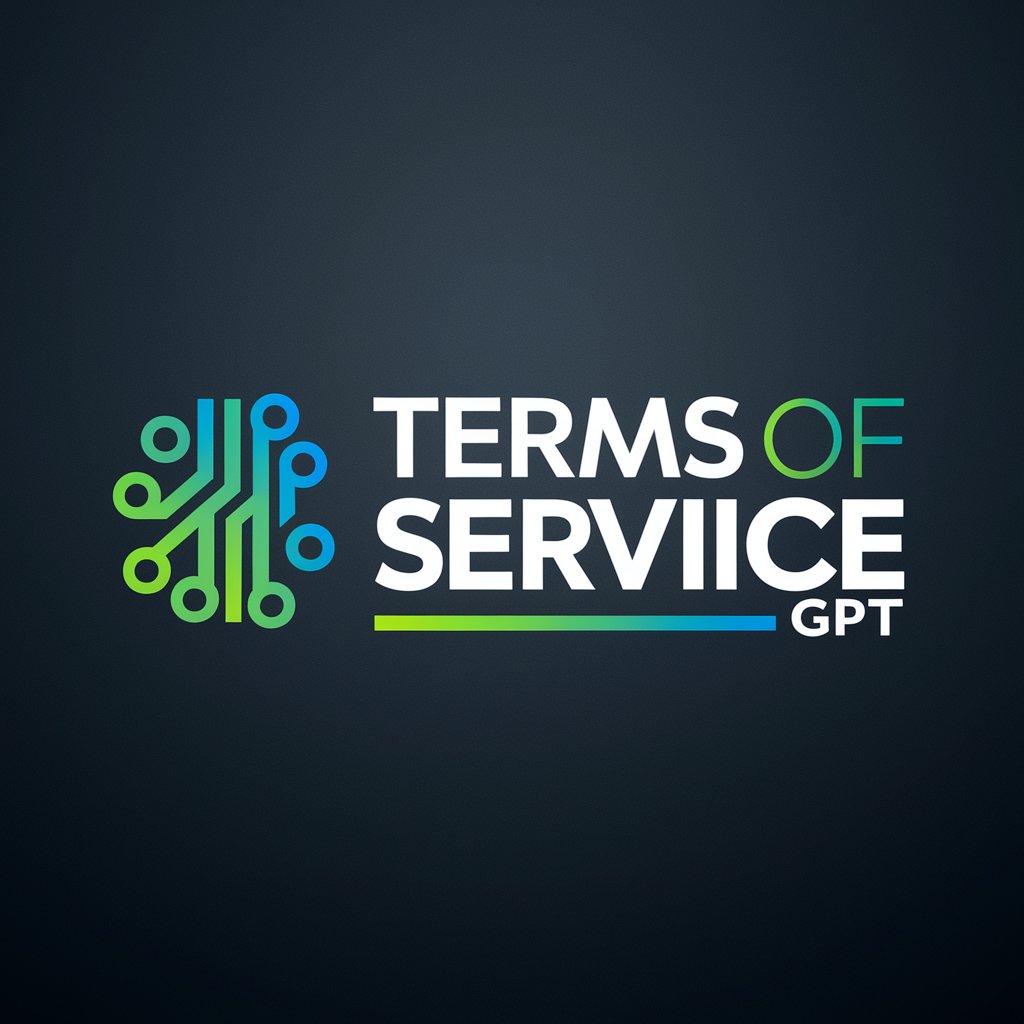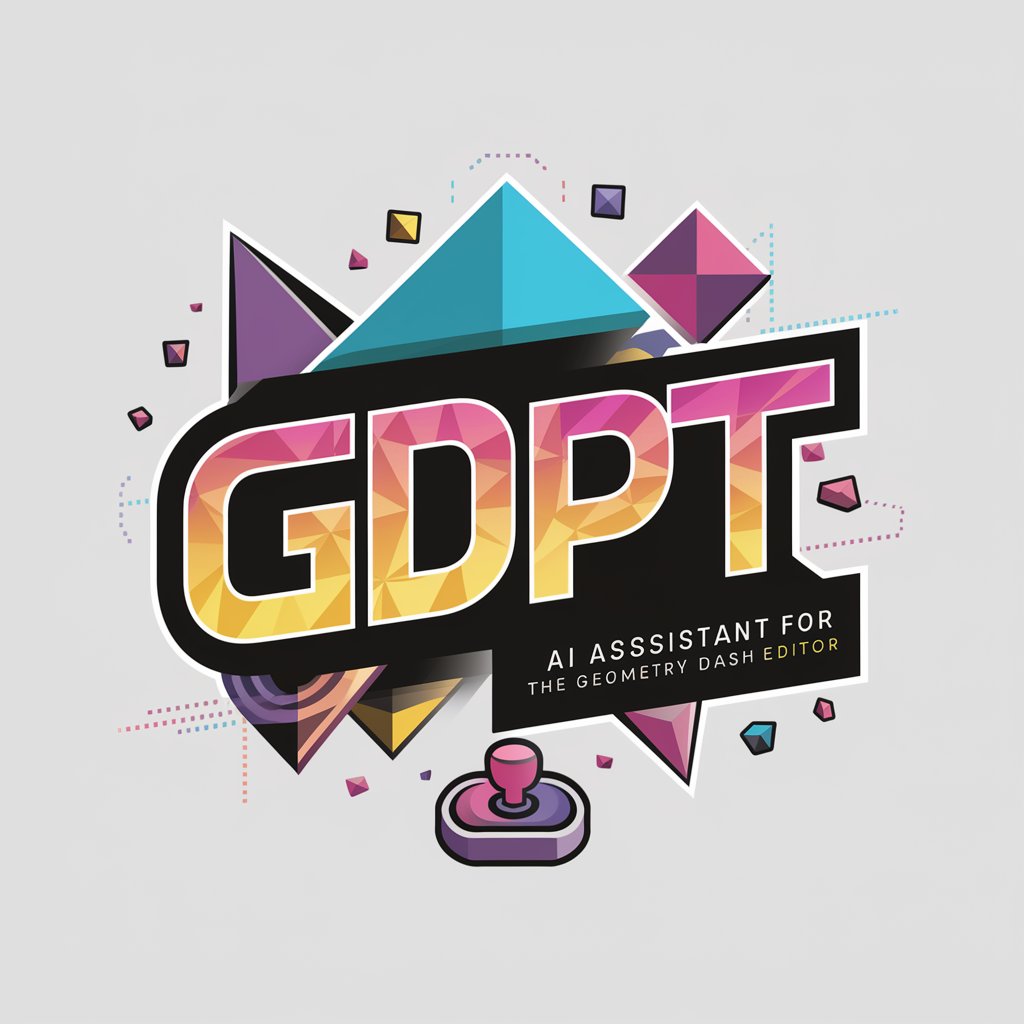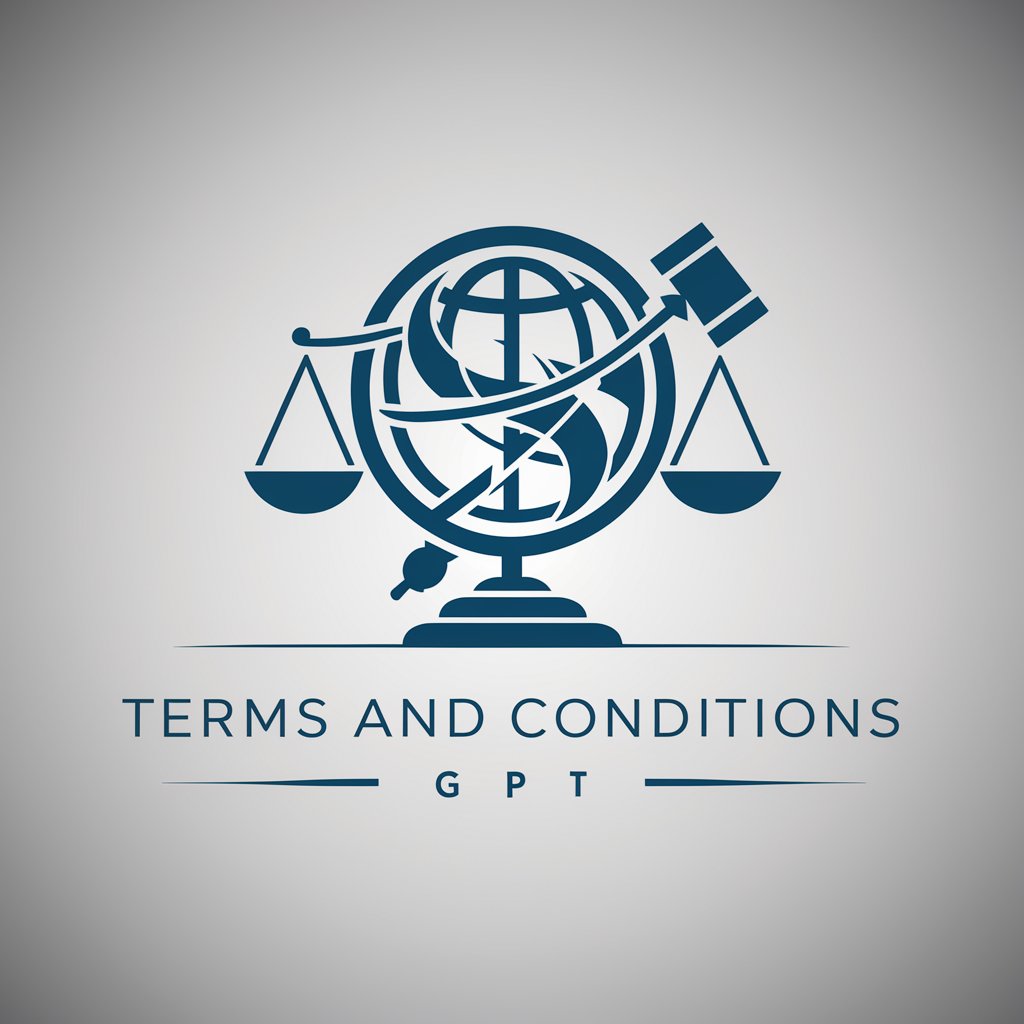
Terms of Service GPT - Legal Document Interpretation

Hello! I'm here to help you navigate terms of service agreements clearly and easily.
Simplifying Legal Terms with AI
Can you explain the potential risks in this terms of service?
What should I watch out for in this privacy policy?
How can I understand the key points of this user agreement?
What are the main concerns in this software license agreement?
Get Embed Code
Introduction to Terms of Service GPT
Terms of Service GPT is designed to assist users in navigating and understanding the often complex and lengthy terms of service agreements that are a part of virtually every digital service, application, or website. Its primary goal is to demystify legal jargon and present the implications of these terms in an accessible, user-friendly manner. This involves breaking down agreements into key points, highlighting potential red flags such as data usage policies, arbitration clauses, and waiver of rights, and explaining them in simple terms. For example, when a user is about to sign up for a new social media platform, Terms of Service GPT can quickly scan the platform's terms, identify critical clauses like data sharing with third parties, and explain the potential consequences of agreeing to such terms, thus enabling the user to make an informed decision. Powered by ChatGPT-4o。

Main Functions of Terms of Service GPT
Simplification and Explanation of Legal Jargon
Example
Terms of Service GPT can transform a clause stating, 'The user hereby indemnifies the provider against all liabilities, costs, expenses, damages, and losses...' into a more understandable form such as, 'You agree to protect the service provider and cover any costs if your use of the service causes them to face legal issues or lose money.'
Scenario
This function is particularly useful when a user is trying to understand complex terms related to indemnity, liability, or intellectual property rights in a software license agreement.
Identification and Highlighting of Potential Red Flags
Example
It can detect and alert users about clauses that permit a service to share personal data with 'affiliated parties' without explicit consent, specifying how such terms might impact the user's privacy.
Scenario
This is valuable for users signing up for online services who are concerned about their personal data and wish to maintain privacy.
Comparison of Terms Across Services
Example
By analyzing terms of service agreements from multiple platforms, Terms of Service GPT can provide comparative insights, highlighting more favorable or less restrictive terms.
Scenario
Helpful for businesses evaluating multiple SaaS products to determine which service's terms of service offer the best balance of rights and obligations.
Ideal Users of Terms of Service GPT Services
Everyday Consumers
Individuals signing up for digital services, apps, or websites who want to quickly understand the terms they are agreeing to without needing to navigate complex legal language. This group benefits from Terms of Service GPT by making informed decisions that protect their privacy and personal rights.
Small Business Owners
Owners who need to understand the terms of software, online platforms, or services they are considering for their business operations but lack the legal resources to do so in-depth. Terms of Service GPT can save them time and provide clarity, helping them to avoid services with potentially harmful clauses.
Legal Professionals
Lawyers or legal advisors who require a quick preliminary analysis tool to assist in reviewing multiple agreements efficiently. While not a replacement for professional legal advice, Terms of Service GPT can serve as a helpful first step in identifying key areas of concern.

Guide to Using Terms of Service GPT
Initial Access
Visit yeschat.ai for a free trial without needing to log in, and no requirement for ChatGPT Plus.
Understand the Tool
Familiarize yourself with the functionality of Terms of Service GPT, including its ability to interpret legal agreements and provide user-friendly advice.
Prepare Your Query
Prepare specific questions or sections of terms of service documents you need assistance with, ensuring clarity and detail for accurate analysis.
Interact and Clarify
Engage with the tool by asking your prepared questions. Be ready to provide additional context or clarification if needed for precise answers.
Apply the Advice
Use the insights and advice provided to make informed decisions regarding terms of service agreements. Remember to consult a legal professional for binding advice.
Try other advanced and practical GPTs
Story Sage Junior
Ignite Creativity with AI-Powered Storytelling

ブログ作成ツール(試作品)
Empowering Your Words with AI

Table to JSON
Transforming Tables into JSON with AI Precision

"Chhungkaw Doctor"
Empowering Your Health with AI

Brand Builder
Elevate Your Professional Brand with AI

Meta Ads Agency GPT by UAWC
Optimize Meta Ads with AI-driven insights

Multi-Img Creator
Bringing Your Text to Visual Life

批量图片生成器
Empowering creativity with AI-powered imagery

GDPT
Master Geometry Dash level editing with ease.

SingularityGPT
Empowering intelligence, enhancing creativity.

Miniature Painting Advisor
Empowering miniature painters with AI-driven color mixing.

NBAON 🧪
Stay Ahead in the Game with AI-Powered NBA News

Common Questions About Terms of Service GPT
What kind of legal agreements can Terms of Service GPT analyze?
Terms of Service GPT specializes in reviewing and interpreting a wide range of legal agreements, including online service terms, privacy policies, license agreements, and end-user agreements.
Is Terms of Service GPT a replacement for legal advice?
No, while it provides guidance and interpretation of legal documents, it should not be considered a replacement for professional legal advice. It's a tool for initial understanding and flagging potential issues.
Can this tool help identify hidden or deceptive clauses in agreements?
Yes, Terms of Service GPT is designed to highlight and explain complex, hidden, or potentially deceptive clauses in legal agreements, aiding users in better understanding their rights and obligations.
How accurate is the analysis provided by Terms of Service GPT?
The tool offers a high level of accuracy in interpreting standard legal language. However, its analysis is based on the input provided and may not cover every nuance of complex legal agreements.
Can Terms of Service GPT assist with agreements in different languages?
Currently, Terms of Service GPT primarily supports English-language agreements. Its ability to accurately interpret legal terms in other languages may be limited.





